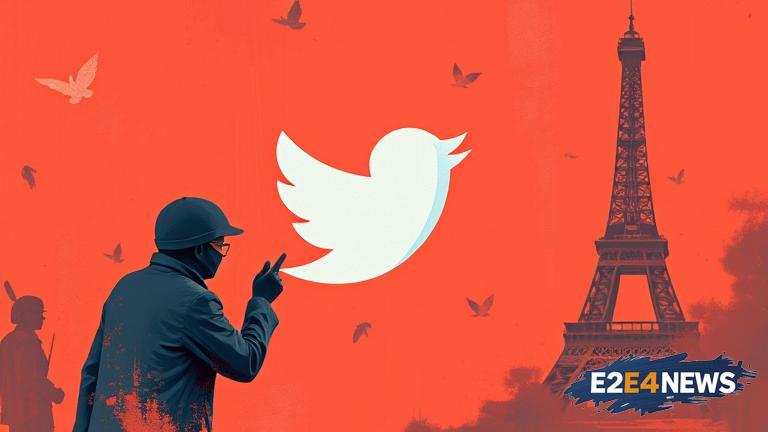In a recent development, Twitter has refused to cooperate with a French investigation into hate speech and harassment on its platform. The investigation, led by the French government, aims to hold social media companies accountable for the spread of harmful content. Twitter’s decision not to cooperate has sparked controversy, with many criticizing the company for its lack of transparency and accountability. The French government has been pushing for greater regulation of social media companies, citing concerns over the spread of misinformation and hate speech. Twitter’s refusal to cooperate has been seen as a setback for these efforts. The investigation is part of a broader crackdown on hate speech and harassment in France, which has seen a rise in recent years. The French government has introduced new laws and regulations aimed at curbing the spread of harmful content, including a law that requires social media companies to remove hate speech within 24 hours. Twitter’s decision not to cooperate has raised questions about the company’s commitment to combating hate speech and harassment. The company has faced criticism in the past for its handling of hate speech and harassment, with many arguing that it does not do enough to prevent the spread of harmful content. The French investigation is just one of several ongoing probes into Twitter’s handling of hate speech and harassment. The company is also facing scrutiny from regulators in other countries, including the US and the UK. Despite the criticism, Twitter has maintained that it is committed to combating hate speech and harassment, and has implemented several measures aimed at reducing the spread of harmful content. However, the company’s refusal to cooperate with the French investigation has raised doubts about its commitment to transparency and accountability. The outcome of the investigation is still unclear, but it is likely to have significant implications for Twitter and other social media companies. The French government has warned that it will take action against companies that fail to cooperate with its investigations, including fines and other penalties. Twitter’s decision not to cooperate has also sparked a debate about the role of social media companies in regulating online content. While some argue that companies should be responsible for policing their own platforms, others argue that governments should play a greater role in regulating online content. The issue is complex, and there are no easy answers. However, one thing is clear: the spread of hate speech and harassment on social media is a serious problem that requires a comprehensive solution. Twitter’s refusal to cooperate with the French investigation is just one part of a larger conversation about the role of social media companies in regulating online content.
